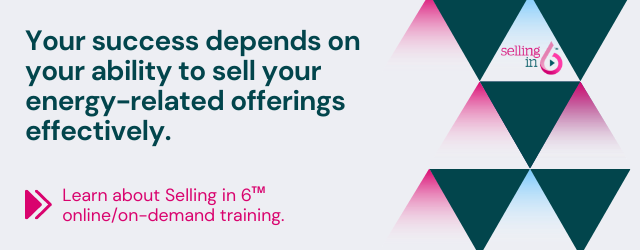A lot of people don't ask for referrals because they think it's begging. It's not.

Have you produced value for your customer? Have you sold them what they deserved to be sold, meaning a solution that made them more competitive, profit or valuable? If so, you should be proud of your accomplishments! So, asking them to refer you to others who would like to enjoy the same benefits is not begging. If anything, it's giving a person the opportunity to be a hero to their friends and colleagues by recommending that they also connect with you.
Here are some appropriate moments to ask a customer for a referral:
- They have had outsized success applying your solution within their business. Why not share that solution with their fellow professionals and friends?
- A customer voluntarily suggests your product is incredible. Their emotional state is already high. There's no reason not to capitalize on that peak emotional state and ask them to give you a referral.
- They send you an unsolicited testimonial. Again, the emotional state is already high. They are indebted to you. They felt that they needed to send you a testimonial. Capitalize on those positive feelings.
- A customer refers someone to you. Some people might say, “Isn’t it a little grabby to ask for more referrals when they just gave you one?” Absolutely not. Years ago, someone called me and said, “Hey, I have somebody you need to call.” I took down their information and then said, “First of all, thank you very much for thinking of me in this regard. I promise I’ll make you proud! Secondly, I have to believe that given your considerable sphere of influence in the commercial real estate business here in town, you must know dozens of other folks just like this who could also benefit from what we do.” Without missing a beat he said, “Yeah! I actually have about half a dozen people in mind for you to call, but I figured since you were a small shop I’d pace them out for you.” Of course, I immediately volunteered that I wasn’t a one-man shop, that I had a whole staff backing me up, and that if he gave me all six names, I’d call every one of them that very day. Sure enough, he provided the other five referrals right then and there. If I had been too shy to ask, I wouldn’t have gotten those other five names!
- A customer admits you “saved their rear end.” There’s a lot of psychic debt there. Make it clear that you could be doing the same for someone else.
- A strategic partner tells you about an association they've joined. Ask them who else is in that association. Ask them, “What progress have you made there? Who do you think are the top players I should be working with there?”
- You complete a project for a customer. Get rid of all that self-doubt and make it known that you can provide the same benefits for someone else. If they need some time to make sure it works for them before volunteering the names of others you might serve, set the groundwork so you can get back in touch with them. “Not now” doesn’t mean “never.” And the sooner you ask, the sooner you’ll get those referrals, even if your customer replies with, “Let’s ensure this all works out, if for no other reason than to be a better reference for you when these people I refer you to ask me for my opinion. So, how about you call me back in a couple months and then I’ll turn you on to some of my friends.”
Getting referrals is one of your most assured, productive, risk-free, low-cost ways of procuring new business and shortening your average sales cycle. Make asking for referrals a no-exceptions best practice in as many of your customer interactions as possible, especially now in uncertain economic times, and I’m sure you’ll begin seeing powerful results.







